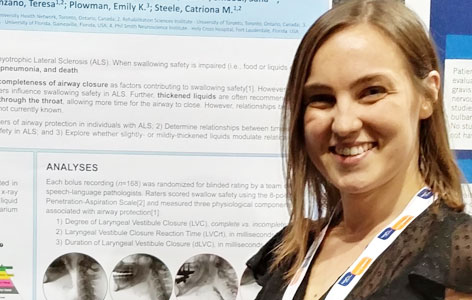
Conference: 29th International Symposium on ALS/MND, December 7–9, Glasgow, Scotland, United Kingdom.
Conference Highlight: The symposium brought together basic, translational, clinical and epidemiological research to broaden our understanding of amyotrophic lateral sclerosis (ALS) and other motor neuron diseases (MND). A key theme throughout the conference was the importance of identifying clinical biomarkers to guide phenotypic classification and inform clinical trial design.
Conference Summary: As part of the opening session of the symposium, a lively debate surrounding the clinical variability of ALS/MND emphasized the need for better stratification in clinical research trials, with therapeutic advancements targeted towards specific phenotypes of ALS/MND. It was argued that specific biomarkers associated with ALS/MND phenotypes were imperative to assist with clinical trial design, paired with accessible metrics of clinical function. These metrics would serve as potential outcome measures, in addition to current outcome measures of prognosis and patient-reported function.
As a registered speech-language pathologist and doctoral student, the development and use of speech and swallowing metrics to inform clinical prognosis and measure response to treatment was quite intriguing. One particular study presented by Smith et al., demonstrated how validated measures of speech (e.g., speech pause duration, total speaking duration) could be used as outcome measures in clinical trials. Results from the study showed that individuals who underwent pharmaceutical treatment targeted towards emotional lability in ALS and related pathologies also led to improvements in total speaking duration and reduced speech pause time.
The work presented at this conference demonstrated that there are useful outcome measures that should be considered in future clinical research trials.




